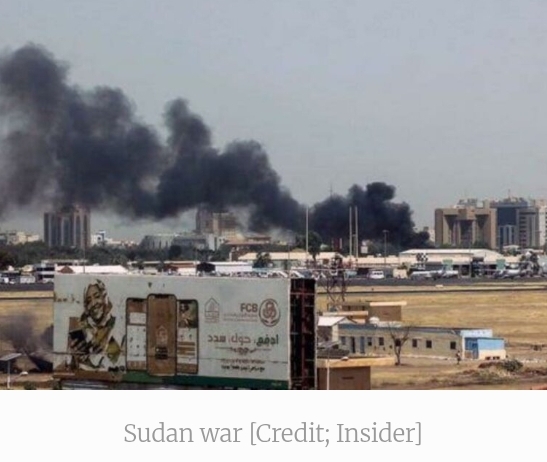Saturday September 06, 2025
By TheNewsDESK |
UN human rights investigators have warned that the Sudanese civilians are paying the highest price as the nearly 30-month-long conflict in Sudan between rival militaries grinds on, NAN reported.
It noted that looting, burning, and shelling continue to destroy livelihoods and hope in the country.
Human rights violations by the military government and Rapid Support Forces (RSF) militia are documented in the latest report to the UN Human Rights Council.

The report was published by the UN’s investigative body probing violations in Sudan, known as the Independent International Fact-Finding Mission (FFM).
The report, ‘A War of Atrocities,” found that both the Sudanese army (SAF) and the RSF directed large-scale attacks against civilians and vital infrastructure, including medical centres, constituting serious violations of international law.
“Our findings leave no room for doubt: civilians are paying the highest price in this war,” Mohamed Chande Othman, chair of the FFM, said in a statement on Friday.
According to the report, civilians are being targeted by both sides for their real or perceived affiliation with the opposing side.
Executions, torture, and rape have become a daily horror for many communities in the war-torn country.

The RSF intentionally directed attacks against non-Arab communities in the besieged Darfuri city of El Fasher and the surrounding region, increasing the toll on what the UN refugee agency (UNHCR), calls the world’s fastest-growing displacement crisis.
Around 12.1 million people have fallen victim to forced displacement as of July, with more civilians killed or fleeing after the SAF targeted the state of Gezira.
Many civilians interviewed for the report said that they had suffered sexual assault.
One witness said that she, along with other women and underage girls, was subjected to rape in an abandoned building.
“Victims – especially women and children, who bear the greatest burden – deserve justice and reparations,” Joy Ngozi Ezeilo, one of the independent investigators, said.
For women and girls in Sudan, receiving psychological or medical support is nearly impossible due to the fear of retaliation from reporting violence and because of regular RSF and SAF attacks on hospitals.
Over 84 Sudanese humanitarian workers were killed, and more were arbitrarily detained between the start of the war in April 2023 and April 2025 after intentional attacks and kidnappings.
The FFM is also conducting an ongoing investigation into a drone attack against a joint World Food Programme and UNICEF convoy in June. Five humanitarian workers died in the attack, while several others were injured.
Meanwhile, humanitarian aid continues to be delayed or obstructed.
“Our report not only exposes atrocities, it also lays out a roadmap for justice,” FFM expert, Mona Rishmawi, said.
The warring parties, mediators, and civil society can all play a role in ending the conflict, as outlined in the report.
Civil society initiatives, such as the Sudanese youth-led initiative “emergency rooms”, are some of the ways in which local communities can begin to repair the fabric of basic human rights law across Sudan.
The report also calls on the international community to enforce an arms embargo, back the International Criminal Court (ICC), and stop cooperating with any combatants or civilians suspected of war crimes, among other recommendations.
“The international community has the tools to act. Failure to do so would not only betray the Sudanese people – it would betray the very foundations of international law,” Mr Othman said.
Related posts
Categories
- Advertisements (1)
- Agriculture (45)
- Breaking News (26)
- Business (598)
- Crime (989)
- Education (319)
- Entertainment (128)
- Features (13)
- For The Records (43)
- Foreign News (1,189)
- Health (219)
- Home News (332)
- Interview (9)
- Judiciary (349)
- Lifestyle (140)
- Local News (111)
- National News (1,448)
- Opinion (26)
- Politics (1,012)
- Religion (157)
- Science and Technology (125)
- Security (680)
- Sports (880)
- States' News (819)
- Transportation (330)
- Uncategorized (10)

